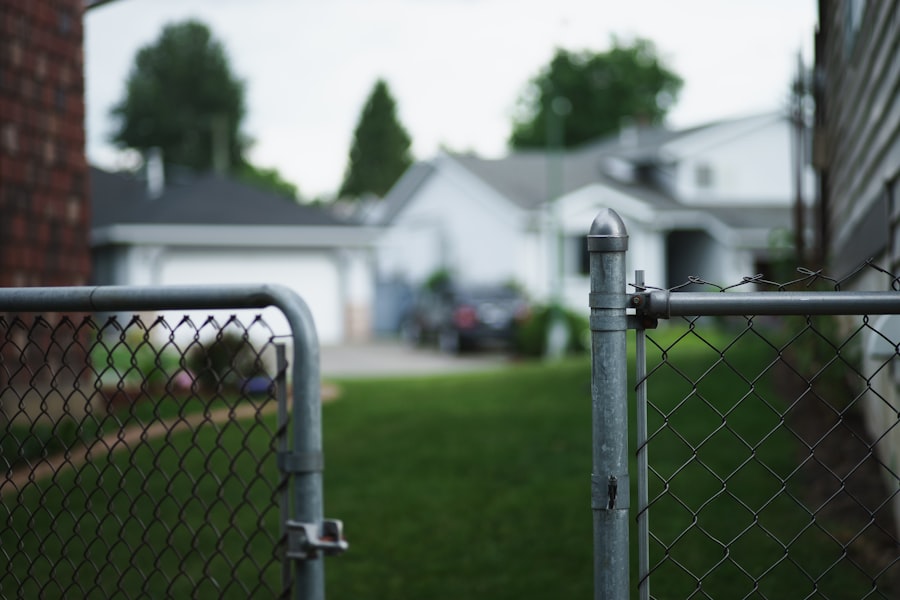Free range chickens exhibit natural behaviors that can impact flower beds and gardens. These birds are instinctive foragers, actively searching for food, insects, and plants. Their scratching and digging behaviors are innate and can lead them to explore flower beds and gardens.
Chickens are social animals that follow a hierarchical structure within their flock. They tend to develop routines, often returning to familiar foraging areas. As diurnal creatures, chickens are most active during daylight hours, which is important to consider when planning protective measures for flower beds.
Dust bathing is another natural behavior of chickens, involving the creation of shallow depressions in loose soil for rolling. This activity can potentially damage flower beds and gardens if left unmanaged. Understanding these inherent behaviors of free range chickens is crucial for developing effective strategies to protect flower beds from their foraging, scratching, and dust bathing activities.
By recognizing these patterns, gardeners can implement targeted measures to safeguard their plants while allowing chickens to engage in their natural behaviors.
Table of Contents
Key Takeaways
- Free range chickens are naturally curious and will forage in flower beds
- Physical barriers such as fences or netting can protect flower beds from chicken damage
- Natural deterrents like citrus peels or coffee grounds can discourage chickens from entering flower beds
- Training chickens with loud noises or water sprays can teach them to avoid flower beds
- Providing alternative foraging areas with grass or insects can redirect chickens away from flower beds
- Regular maintenance and monitoring of flower beds can prevent chicken damage
- Seek professional help from a veterinarian or animal behaviorist if chicken behavior becomes a persistent issue
Creating physical barriers to protect flower beds
Physical Barriers: Fencing and Chicken Wire
One effective way to protect flower beds from free range chickens is by creating physical barriers. This can be achieved by installing fencing around the perimeter of the flower beds or using chicken wire to cover the soil. Fencing should be at least 3 feet high to prevent chickens from jumping over it, and the bottom should be buried at least 6 inches into the ground to prevent them from digging underneath.
Raised Garden Beds: A Defined Boundary
Another option is to use raised garden beds, which can be constructed using materials such as wood or stone. Raised beds not only provide a physical barrier to keep chickens out but also create a defined boundary for the flower beds. Additionally, using mulch or gravel around the flower beds can make it less appealing for chickens to scratch and dig, as they prefer loose soil for dust bathing.
Perimeter Fencing: A Comprehensive Solution
For larger areas, such as vegetable gardens or orchards, installing a perimeter fence with a chicken wire roof can effectively keep chickens out. This method not only protects the plants from foraging chickens but also prevents other wildlife from accessing the area.
Using natural deterrents to keep chickens away
In addition to physical barriers, natural deterrents can also be used to keep free range chickens away from flower beds. One common natural deterrent is the use of predator decoys, such as fake owls or hawks, which can create the illusion of danger for chickens. These decoys should be moved regularly to prevent chickens from becoming accustomed to them.
Another natural deterrent is the use of strong-smelling plants, such as lavender, mint, or marigolds, which can deter chickens with their pungent aroma. Planting these around the perimeter of flower beds can create a natural barrier that chickens are less likely to cross. Additionally, sprinkling cayenne pepper or garlic powder around the flower beds can also deter chickens due to their strong scent and taste.
Using reflective objects, such as aluminum foil strips or CDs, can create visual deterrents that deter chickens from entering flower beds. The movement and reflection of light from these objects can startle and confuse chickens, making them less likely to approach the area. Natural deterrents offer a non-invasive and environmentally friendly way to keep free range chickens away from flower beds while also adding aesthetic value to the garden.
Training chickens to avoid flower beds
Training free range chickens to avoid flower beds can be a challenging but effective method of protection. One approach is to use positive reinforcement by providing alternative foraging areas with desirable treats, such as mealworms or scratch grains. By consistently rewarding chickens for foraging in designated areas away from flower beds, they can be trained to associate those areas with food and learn to avoid the flower beds.
Another method is to use negative reinforcement by creating deterrents around the flower beds that make it unpleasant for chickens to approach. This can include using motion-activated sprinklers or noise-making devices that startle chickens when they come near the flower beds. Over time, chickens may learn to associate the unpleasant experience with the flower beds and avoid them altogether.
Consistency is key when training free range chickens, as they are creatures of habit and may take time to change their behavior. By providing consistent reinforcement and deterrents, it is possible to train chickens to avoid flower beds and respect designated areas for foraging. Training chickens requires patience and persistence but can be an effective long-term solution for protecting flower beds.
Providing alternative areas for chickens to forage
One way to prevent free range chickens from entering flower beds is by providing alternative areas for them to forage. This can be achieved by designating specific areas in the garden or yard where chickens are encouraged to scratch and peck. These areas can be filled with loose soil, sand, or mulch and scattered with treats such as mealworms or scratch grains to attract the chickens.
Another option is to create a chicken-friendly garden with plants that are safe for chickens to eat and scratch around, such as sunflowers, clover, or grasses. By providing an attractive alternative foraging area, chickens are less likely to seek out flower beds for food and entertainment. Additionally, creating a designated dust bathing area with loose soil or sand can satisfy their natural instinct to dust bathe without damaging flower beds.
For larger properties, allowing free range chickens access to pasture areas where they can graze and forage for insects and plants can help reduce their interest in flower beds. Providing alternative areas for chickens to forage not only protects flower beds but also promotes natural behaviors and enrichment for the chickens.
Consistent maintenance and monitoring of flower beds

Maintenance is Key
Consistent maintenance and monitoring of flower beds are essential in protecting them from free range chickens. Regular weeding and pruning can help keep flower beds tidy and less appealing for chickens to scratch and peck at. Removing any fallen fruits or seeds can also reduce the attraction of flower beds for foraging chickens.
Monitoring Chicken Behavior
Monitoring the behavior of free range chickens around flower beds is important in identifying any potential issues or areas of concern. Observing their patterns of movement and foraging habits can help in determining where additional protection may be needed. Additionally, addressing any potential attractants, such as spilled birdseed or compost piles near flower beds, can help reduce the presence of free range chickens in the area.
Benefits of Proactive Care
Consistent maintenance and monitoring of flower beds not only protect them from free range chickens but also contribute to their overall health and appearance. By staying proactive in caring for flower beds, it becomes easier to identify and address any potential issues before they escalate.
Seeking professional help if necessary
In some cases, protecting flower beds from free range chickens may require professional assistance. Consulting with a local poultry expert or agricultural extension office can provide valuable insights and recommendations for managing free range chicken behavior around flower beds. They may offer specific strategies tailored to the local environment and chicken population.
Professional landscapers or gardeners can also provide expertise in designing and implementing protective measures for flower beds against free range chickens. They may recommend specific plant species that are less attractive to chickens or offer creative solutions for integrating protective barriers into the landscape design. If free range chicken behavior becomes a persistent issue despite efforts to protect flower beds, seeking professional help may be necessary.
Professional animal behaviorists or trainers can provide specialized guidance in understanding and modifying chicken behavior to prevent them from damaging flower beds. In conclusion, understanding the behavior of free range chickens is crucial in developing effective strategies to protect flower beds from their foraging and scratching activities. Creating physical barriers, using natural deterrents, training chickens, providing alternative foraging areas, consistent maintenance and monitoring, and seeking professional help if necessary are all important approaches in protecting flower beds from free range chickens.
By implementing these strategies, it is possible to maintain beautiful and thriving flower beds while allowing free range chickens to roam in a controlled manner.
If you’re looking for more tips on keeping free range chickens out of your flower beds, you might also be interested in learning about whether turkeys need a coop. Check out this article for more information on turkey housing and how it relates to keeping your garden safe from poultry.
FAQs
What are free range chickens?
Free range chickens are poultry that are allowed to roam freely and forage for food, as opposed to being confined to a coop or small enclosure.
Why do free range chickens go into flower beds?
Free range chickens may be attracted to flower beds because they provide a source of insects, seeds, and other tasty treats for the chickens to forage.
How can I keep free range chickens out of my flower beds?
There are several methods to keep free range chickens out of flower beds, including using physical barriers such as fencing or chicken wire, planting chicken-resistant plants, using natural deterrents like citrus peels or coffee grounds, and providing alternative foraging areas for the chickens.
Are there any plants that can deter free range chickens from entering flower beds?
Yes, there are certain plants that are known to be unappealing to chickens, such as marigolds, lavender, and rosemary. Planting these around the perimeter of the flower beds may help deter the chickens from entering.
Is it harmful for chickens to eat plants from flower beds?
While some plants may be harmful to chickens if ingested, most common garden flowers and plants are not toxic to chickens in small quantities. However, it is still best to keep chickens out of flower beds to prevent damage to the plants.
Meet Walter, the feathered-friend fanatic of Florida! Nestled in the sunshine state, Walter struts through life with his feathered companions, clucking his way to happiness. With a coop that’s fancier than a five-star hotel, he’s the Don Juan of the chicken world. When he’s not teaching his hens to do the cha-cha, you’ll find him in a heated debate with his prized rooster, Sir Clucks-a-Lot. Walter’s poultry passion is no yolk; he’s the sunny-side-up guy you never knew you needed in your flock of friends!







